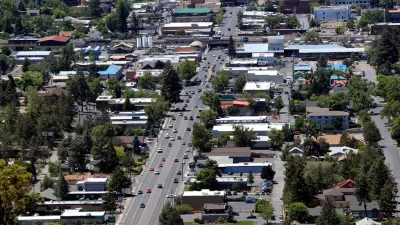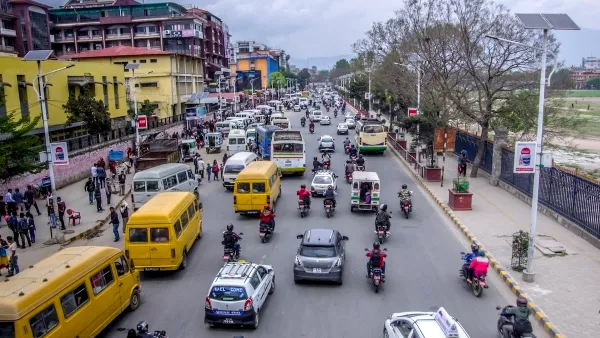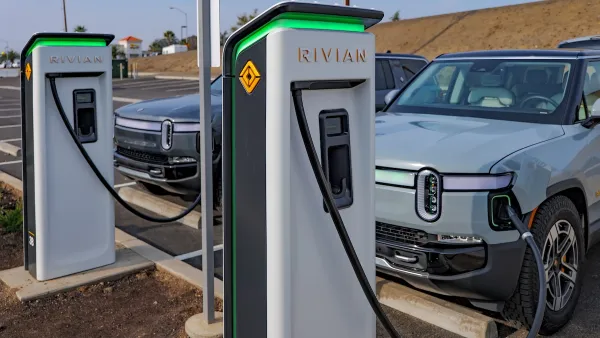Using complex transportation modeling, new research published in the Journal of Planning Education and Research confirms that developments built to the standards of LEED for Neighborhood Development (LEED-ND) reduce driving and associated emissions.
"Confirming previous analysis, newly published research indicates that real estate development located, designed and built to the standards of LEED for Neighborhood Development will have dramatically lower rates of driving than average development in the same metropolitan region," reports Kaid Benfield, who helped develop the standards with colleagues at the NRDC, the Congress for the New Urbanism, and the US Green Building Council. "In particular, estimated vehicle miles per person trip for twelve LEED-ND projects that were studied in depth ranged from 24 to 60 percent of their respective regional averages."
"For this reader, the study confirmed once again that shortening driving trip distances through central locations (as in redevelopment sites) is the single most important thing we can do to reduce vehicle miles traveled and associated carbon and other emissions," says Benfield.
FULL STORY: How LEED-ND standards reduce driving and associated emissions: new research

Maui's Vacation Rental Debate Turns Ugly
Verbal attacks, misinformation campaigns and fistfights plague a high-stakes debate to convert thousands of vacation rentals into long-term housing.

Planetizen Federal Action Tracker
A weekly monitor of how Trump’s orders and actions are impacting planners and planning in America.

In Urban Planning, AI Prompting Could be the New Design Thinking
Creativity has long been key to great urban design. What if we see AI as our new creative partner?

King County Supportive Housing Program Offers Hope for Unhoused Residents
The county is taking a ‘Housing First’ approach that prioritizes getting people into housing, then offering wraparound supportive services.

Researchers Use AI to Get Clearer Picture of US Housing
Analysts are using artificial intelligence to supercharge their research by allowing them to comb through data faster. Though these AI tools can be error prone, they save time and housing researchers are optimistic about the future.

Making Shared Micromobility More Inclusive
Cities and shared mobility system operators can do more to include people with disabilities in planning and operations, per a new report.
Urban Design for Planners 1: Software Tools
This six-course series explores essential urban design concepts using open source software and equips planners with the tools they need to participate fully in the urban design process.
Planning for Universal Design
Learn the tools for implementing Universal Design in planning regulations.
planning NEXT
Appalachian Highlands Housing Partners
Mpact (founded as Rail~Volution)
City of Camden Redevelopment Agency
City of Astoria
City of Portland
City of Laramie





























